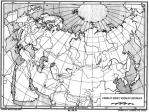200) Crescimento econômico não combina com grandes gastos públicos...

Importante estudo baseado nas melhores evidências possíveis sobre a experiência de construção do “capitalismo” em economias anteriormente caracterizadas por forte intervencionismo estatal:
The Eurasian Growth Paradox
Anders Åslund
Institute for International Economics
Email: aaslund@iie.com
Nazgul Jenish
University of Maryland at College Park
Email: jenish@econ.umd.edu
Draft December 18, 2005
Seleciono apenas este trecho das conclusões:
“The obvious conclusion is instead that high public expenditures and taxes are bad for economic growth. The overall conclusion is that a liberal economic policy or greater economic freedom does promote economic growth, which should be conventional wisdom rather than controversial.”
E transcrevo aqui o:
Abstract
In the first decade of transition, multiple growth regressions showed that the more radical and comprehensive market economic reform was, the earlier a country returned to economic growth and the more vigorous its growth, and Central Europe took the lead.
Since 2000, however, the CIS countries have had more than four percentage points higher annual growth than the Central European countries. A regression analysis for 20 postcommunist countries shows with strong significance that a reduction of public expenditures has most effectively stimulated economic growth. As expected, oil exports are also positive and significant. The distance from the EU is also positive and significant, that is, the further from the EU, the higher economic growth. The effect of corruption is negative for growth but only marginally significant. Neither the laggard effect nor investment reveal any significant effect. The conclusion is that more emphasis should be given to the need to reduce public expenditures to boost economic growth.


0 Comments:
Postar um comentário
<< Home